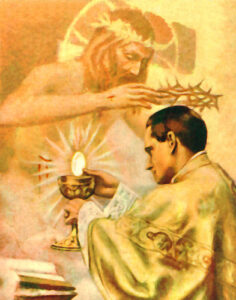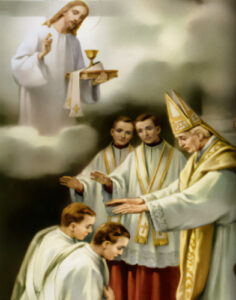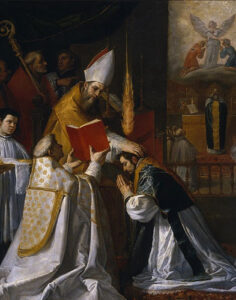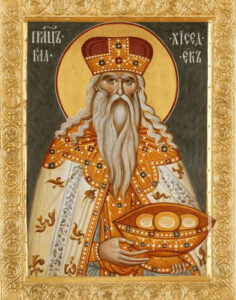Tuesday of the Tenth Week in Ordinary Time – Mt 5:13-16
Today’s readings speak to us of two very important symbols to understand our role in the present world: they speak to us of salt and light. So today we can think about these two symbols and think about how we can live out the truths that they present to us.
Let’s start with salt. Christ said to us: You are the salt of the earth. But if salt loses its taste, with what can it be seasoned? To understand well what Christ is saying, we need to think a little about the importance of salt in Biblical times. Salt has been used for three reasons: first, salt is the medium usually used to store food. Hence, we, as salt of the earth, are called to preserve the faith we have received. In other words, we are called to keep the faith. This means, according to the doctors of the Church, that the very least we can do is not be a cause of scandal for others. For example, using bad words, talking about others, or dressing badly, are ways in which we lose the taste of salt, because in this way we do not do anything. We need to think about the examples we give in our lives.
Second, salt has been used for sacrifice: many times in the Old Testament we read that the sacrifice must be mixed with salt. Therefore, to be the salt of the world, we must make all our actions a means of sanctification. As St. Josemaría said “Sanctify work, sanctify in work and sanctify with work.” It is clear that the one who sanctifies is God, but the Christian can and must cooperate. It is a fundamental truth that man, created in the image of God, through his work participates in the work of the Creator, and to the extent of his possibilities, in a certain sense, continues to develop and complete it. We must make a prayer of our work, in the shop, in the house, in the school, and use it to sanctify others.
Third, salt has been used as a medicine. We all know that salt is an antiseptic, meaning, it kills bacteria in wounds, but it causes pain. It causes pain. We too, in the middle of the world, like the salt of the world, cause some pain, in the sense that we say to the world, through our example and also with our words, that God exists, that the law of God exists, and that our happiness is not to be found in sin. Telling the truth never pleases the world, but our lives are not to please the world, but to lead it to God.
So when Jesus speaks of being the salt of the world we have to think about the examples we give in our lives, about our work, and whether we live to please God or to please the world.
Now we can think about the symbol of light. Christ tells us: You are the light of the world. . . let your light shine before men, that they may see your good works and give glory to your Father who is in heaven.
Saint Augustine says that it is not that we seek the glory of men, meaning, we do not do things to be seen or receive the praise of others, but that we want that through our actions, men give glory to God, that is, that they recognize in me that God is the source of all good and of all holiness. As a poor man said, after speaking with St. Vincent of Paul, “God must be good, because he made Vincent so good.” Or, speaking of St. John Marie Vianney, a man said: “I have seen God in a man.” It is said of Saint Anthony the Abbot, that, after he spoke to someone, he always went better than when he arrived before talking to him.
All of us will have to be the light of the world, as Christ says. We must shine, as a reflection, with the light of Christ. He said: I am the light of the world; whoever follows me will not walk in darkness, but will have the light of life. We can say that light explains Christ’s identity and His mission, and we, who must be light, participate in His identity and in His mission.
First and foremost, this contact with light is a personal experience, the personal encounter with Christ who illuminates life with new light, which gives meaning to our lives. It is only in this way, after the encounter with Christ, that we can totally surrender ourselves to Him, share our faith with others and thus be the light of the world.
We ask Mary Most Holy, Mother of Christ, to obtain for us the grace of being the salt and light of the world, as Christ asked.

In Persona Christi
To the venerable memory of two legendsof the clergy of






